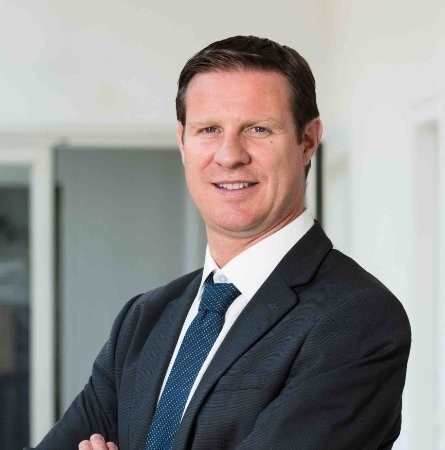Covivio Newsletter
Understanding tomorrow's city
- Find out all the Covivio news every month
- Discover our latest projects: offices, residential, hotels
- Decipher the city and its challenges with our Expert Views
Aware of the issues surrounding water, Covivio has long been taking steps to optimise consumption in its buildings. These measures are already bearing fruit: between 2008 and 2022, the amount of water consumed by our office portfolio in France fell by 38%.
To align our actions with the government’s Water Plan, we have deployed EcoWater: a programme of concrete actions to optimise water consumption in our office buildings in France, while involving our entire ecosystem.
Pascal Reungoat, Director of Property Engineering at Covivio, explains.
Pascal Reungoat: The OID estimates the consumption of an office building at 0.33 m3/m²/year, or 3,300 m3 for a 10,000 m² building. With this in mind, combined with an increase in the price of water and a summer when we had to be particularly careful with water consumption, we decided to launch the EcoWater programme in September 2023. The aim is to achieve savings in water consumption across our office portfolio in France. This programme is in line with the actions we have already taken to reduce the energy consumption of our portfolio.
Pascal Reungoat: Prior to the launch of EcoWater, we mapped our French office portfolio in order to take stock of the situation and set targets, both in general and for each building.
Following this, we defined a set of actions and objectives based on 4 pillars, which aim to meet and exceed the ambitions of the government’s Water Plan by 10% by 2030.
The 4 pillars are as follows:
Pascal Reungoat: We are deploying very specific actions under each pillar.
For example, as part of the 1st pillar, “Economical day-to-day consumption”, we have focused on sanitary fittings and restaurants, which are major items.
As far as sanitary facilities is concerned, we have fitted all our buildings with water-saving equipment, such as aerators and flow limiters, water-saving toilet flushes, detection taps, etc. As for the restaurants, we have worked with our partners to get them to install water-saving equipment (dishwashers, etc.). At the same time, we have deployed water recovery systems, particularly for the upkeep of green spaces, which are made up of local plant species that can live independently and do not require additional water.
To monitor the progress of these actions, we have set ourselves a target of the end of 2024:
The second pillar of our EcoWater programme focuses on leak detection:
By the end of 2024, we aim to have 100% of our multi-tenant buildings fitted with processes and/or equipment to limit leaks.
The third pillar of our programme aims, by the end of the 1st quarter of 2024, to put in place real-time monitoring of consumption via automatic feedback of information from the BMS or the dealers’ web portals. We will then be able to integrate this data into the building’s overall energy management system.
Finally, the last pillar of EcoWater relates to all the actions that we are putting in place with our ecosystem, i.e. adjusted specifications for our service providers, charters for good water management, and joint initiatives with our customers to implement good practices. From 2024 onwards, we will be rolling out awareness-raising initiatives in our various buildings, in addition to the CSR committees that already meet once or twice a year.
This programme is unique in the use of automated detection systems. We monitor actions and their benefits very closely to ensure that they are in line with our objectives.
Pascal Reungoat
Director of Property Engineering

Pascal Reungoat: The EcoWater programme is the result of a study carried out in France, but our aim is of course to share it with Italy and Germany, and to adapt it to the specific challenges of each country and each property.
It is also intended to be deployed right from the development phase of a building, which will enable us to go even further than the actions imposed by legislation, and by 2026/2027 to have a ‘mature’ portfolio in the sense that we will have put in place all the actions enabling us to optimise water consumption.